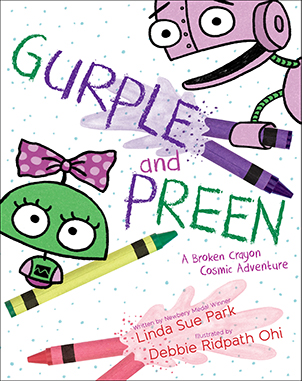Dealing With Rejection: Tips For Writers
I don't care what any writer says, no matter how experienced: Rejection hurts.
Maybe not the soul-wracking agony of Mimi in this week's strip, but at the very least a small twinge of irritation, a miniscule blow to one's ego. Unless you're incredibly lucky, it's also an inevitable part of the freelance writing life.
Being able to handle rejection is also one of the first tests in a potential freelance writer's career. I know many who bow out after only one rejection, convinced by a single editor's rebuff that they don't have the talent to be a writer.
Some don't even make it that far, forever working on a writing project but never actually managing to get it "ready enough" to actually to submit to a publisher because, deep-down, they don't want to face the possibility of rejection and humiliation.
Here are a few suggestions on how to deal with rejection:
- Don't be embarrassed about being disappointed; accept it as part of the writing life. But then move on to other writing projects.
- If there is a handwritten or personally written rejection on your letter/e-mail, be encouraged. It means the editor thought your submission worth the time to add a personal note. Read criticisms carefully. If you agree with them, make the appropriate changes before sending it out again.
- If your rejection was a form letter, don't be discouraged. It may just mean that the editor was too busy or overwhelmed with his/her work to write something more personal.
- Remember that there are many different reasons why the editor rejected your piece that could have nothing to do with your writing. Just a few of these possible reasons: they may be overstocked, have just published something on a similar topic, you sent your piece to the wrong editor, the editor has overspent his/her monthly budget, or maybe was just having a bad day.
- Have another potential market for your piece researched. Pre-address another envelope, have it ready. That way if you get a rejection, you can send it out again right away. If you get a check instead, well...you can use the envelope for sending another piece! :-)
Some related resources:
Dealing With Rejections by Ellen Jackson. An excellent article with some good points.
Rejection Slips: A Balm for Writers and as Certain as Death by
Gerald W. Haslam. This piece offers an interesting perspective from the editor's side of rejections in addition to that of writers.
Dealing with Rejection by Lee Masterson. Part of Fiction Factor. Lots of useful tips here.
How Do You Handle Rejection? by Kenneth T. Henson. Focuses on academic publishing, but some of the advice is still useful.
Reader feedback to my previous column:
Thanks for your feedback to Avoiding Distractions While Working At Home.
Margaret Middleton says she misses the old style external answering machine, "where you could HEAR the person’s voice leaving the message, and interrupt it if it was somebody you had time to talk to Right Then. This also gave you an extra few seconds to Get There From The Other Room."
Mari takes advantage of this aspect of answering machines, saying she ditched voicemail when they got DSL. "I set it so that it picks up after two rings. Too, we live in a one-floor apartment, and I have the volume set so that I can hear it regardless where I am. The only time I pick up is when it’s my husband calling from work, either of my two boys, my mother, or my husband’s mother — unless someone’s emailed and told me to expect their call. Otherwise, if it’s improtant, the caller can leave a message, and I can call them back."
Being the mother of a toddler, Annie Walker faces additional challenges: "I loved your suggestions and the links you provided, as this is becoming more of a problem for me on a day by day basis. Copywriting only makes up a portion of my day, but I’m a mother running two businesses from home whilst looking after my toddler - every working day revolves about the interruptions at the moment and it is DRIVING ME CRAZY!!!
We hope to have built a new home right around the time our youngest starts school fulltime, and I’m really looking forwards to being able to provide some focus and structure to my working days, instead of the fire-fighting which I seem to be doing at the moment!
Thanks again for the suggestions and links - I am mentally filing them all away for 18 months until I start implementing them."
Lois is looking forward to reading my future column on coping with e-mail distractions: "I’m just starting out, really, and have been having a really hard time with e-mail distractions. I can’t wait to read more on this! And thanks for all the other great tips!
They’ll really help.
Have a great day,
Lois"
Suggestions? Feedback?
How do you cope with rejection? Also (in prep for the column on e-mail distractions sometime in the future mentioned in the paragraph above), how do you manage your e-mail or e-mail time so it doesn't become a distraction from your freelance writing?







 Wednesday, February 1, 2006 at 2:30 PM
Wednesday, February 1, 2006 at 2:30 PM